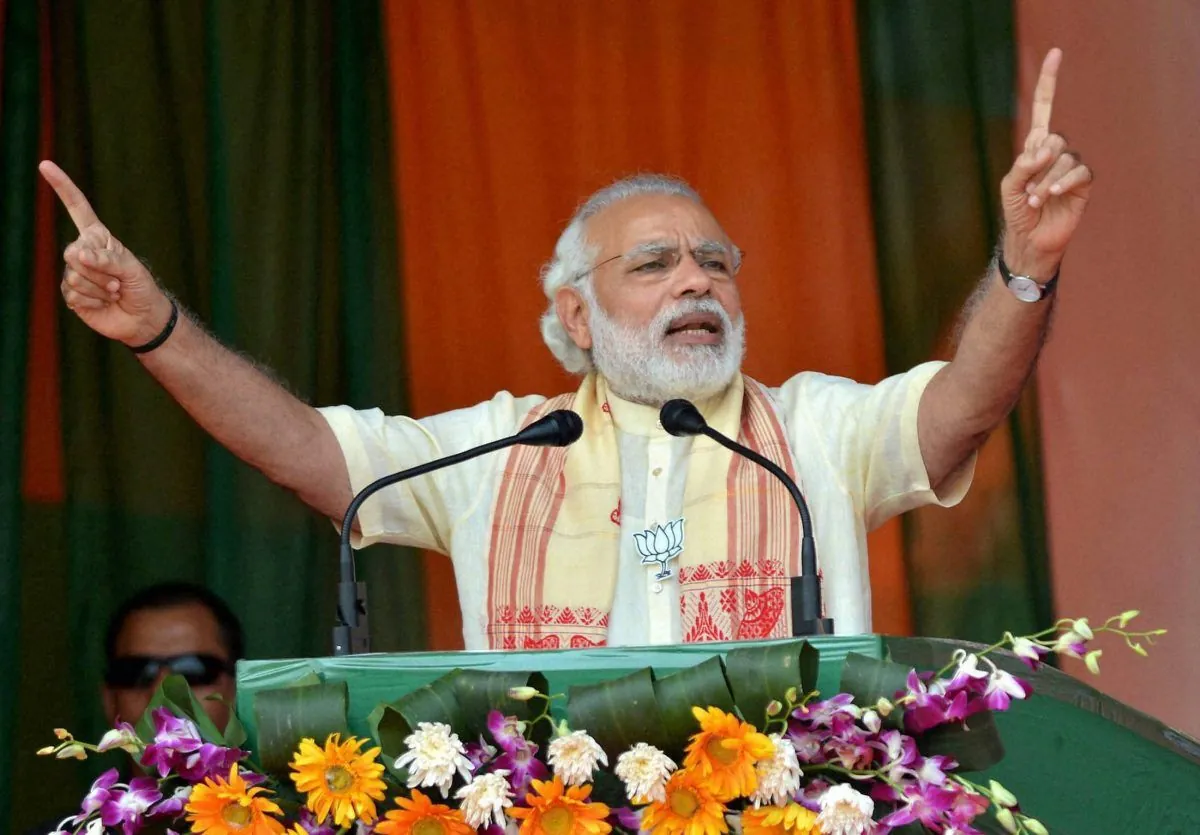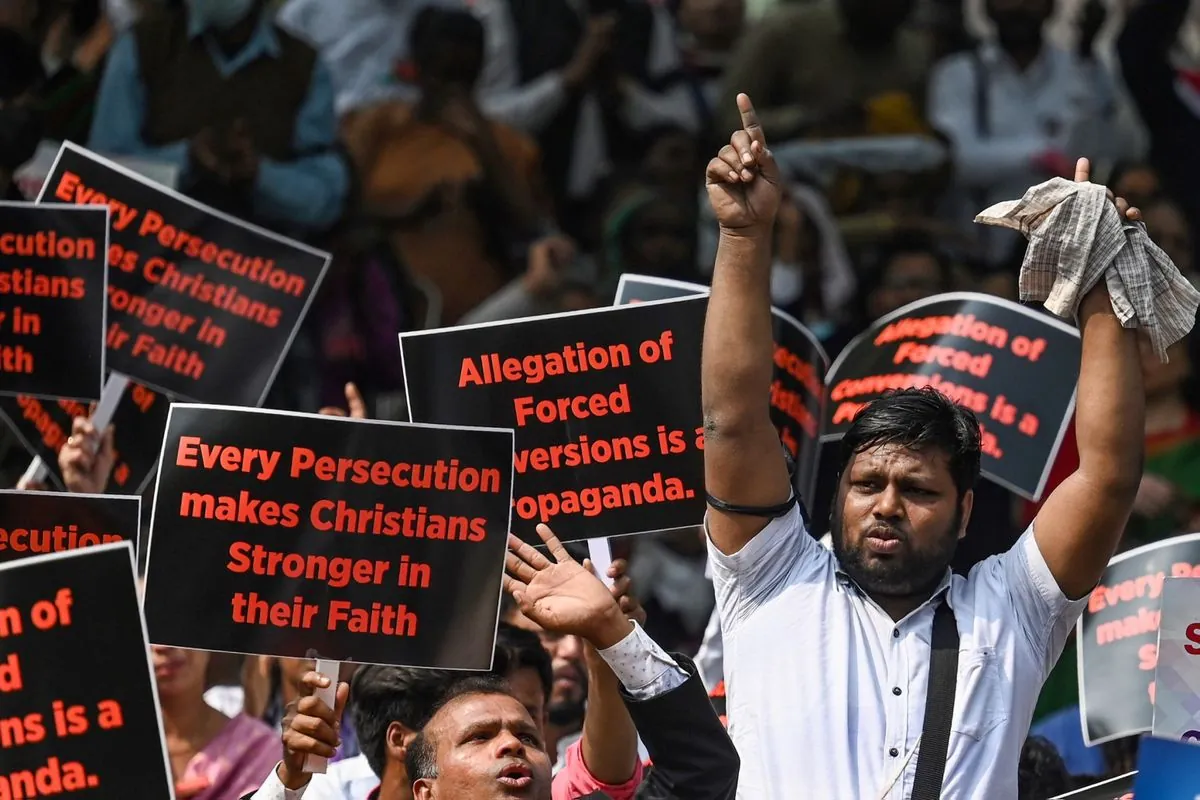Modi's Third Term: Reshaping India's Democratic Landscape
Narendra Modi begins his third term as India's Prime Minister, facing challenges to his vision of a Hindu nationalist state. Critics warn of democratic backsliding and suppression of dissent.

Narendra Modi has secured an unprecedented third term as India's Prime Minister, despite recent setbacks in the 2024 election. His Bharatiya Janata Party (BJP) lost 63 seats but still maintains a significant majority in Parliament. This electoral outcome reflects Modi's enduring popularity and the deep-rooted impact of his policies on Indian society.
Since taking office in 2014, Modi has pursued a vision of India that diverges from the secular, pluralistic ideals of the country's first Prime Minister, Jawaharlal Nehru. Modi's governance style, honed during his 12-year tenure as Chief Minister of Gujarat, emphasizes Hindu nationalism, centralized power, and a more assertive foreign policy.
Modi's approach to leadership has raised concerns among democracy watchdogs. Freedom House, the V-Dem Institute, and the Economist Intelligence Unit have all downgraded India's democratic rankings in recent years. Critics point to the suppression of dissent and the use of laws like the Unlawful Activities (Prevention) Act (UAPA) to target government opponents.

The Bhima Koregaon case exemplifies these concerns. In 2018, authorities arrested 16 activists and human rights defenders under the UAPA, accusing them of involvement in a conspiracy. Many of those detained have since been released or granted bail, but the case has had a chilling effect on civil society.
"The BK-16 case reveals a pattern of politically motivated arrests, illegal searches, and attempts to portray dissidents as criminals."
Modi's ideological roots can be traced to the Rashtriya Swayamsevak Sangh (RSS), a Hindu nationalist organization he joined in the 1970s. The RSS, which will mark its centenary in 2025, draws inspiration from early 20th-century European nationalist movements.
Vinayak Savarkar, a controversial figure in Indian history, has emerged as a key ideological influence for Modi and his supporters. Savarkar's 1922 work "Essentials of Hindutva" laid the foundation for Hindu nationalist thought, emphasizing a vision of India as both a fatherland and a holy land for Hindus.
While Modi's economic policies have contributed to rapid growth, inequality has widened. The Prime Minister has maintained popular welfare programs while projecting an image of India as a rising global power. However, challenges such as high unemployment and persistent corruption have tempered enthusiasm for his leadership.
As Modi begins his third term, the future of Indian democracy hangs in the balance. The opposition, independent media, and judiciary face the crucial task of upholding constitutional values in the face of an increasingly centralized and nationalist government.
The impact of Modi's vision extends beyond India's borders, with the Indian diaspora playing a significant role in supporting Hindu nationalist causes globally. This international dimension adds complexity to the ongoing transformation of the world's largest democracy.
In the coming years, India will grapple with the long-term consequences of Modi's governance. The challenge of reconciling Hindu nationalist aspirations with the country's diverse, pluralistic heritage will shape the nation's trajectory for generations to come.


































